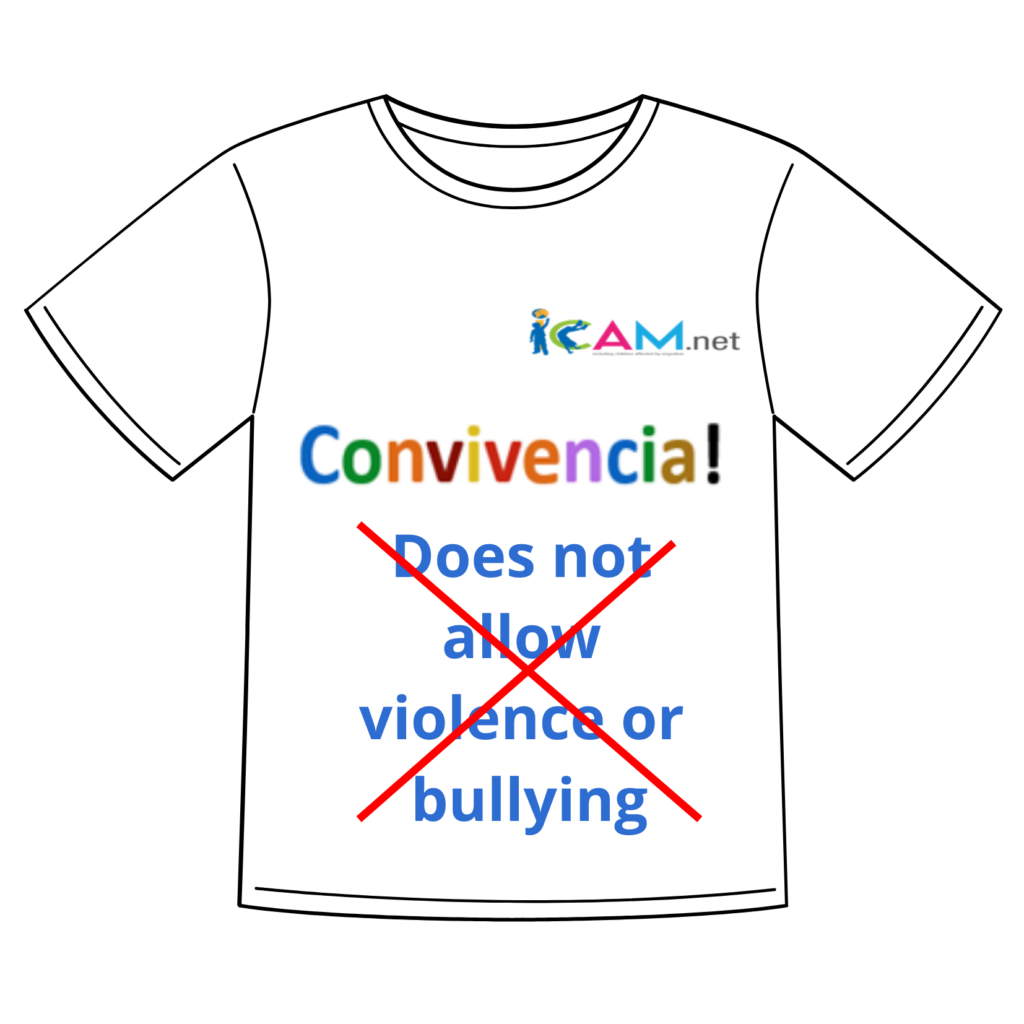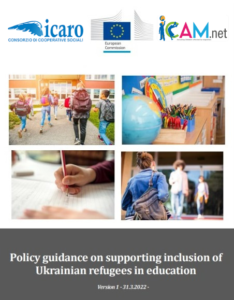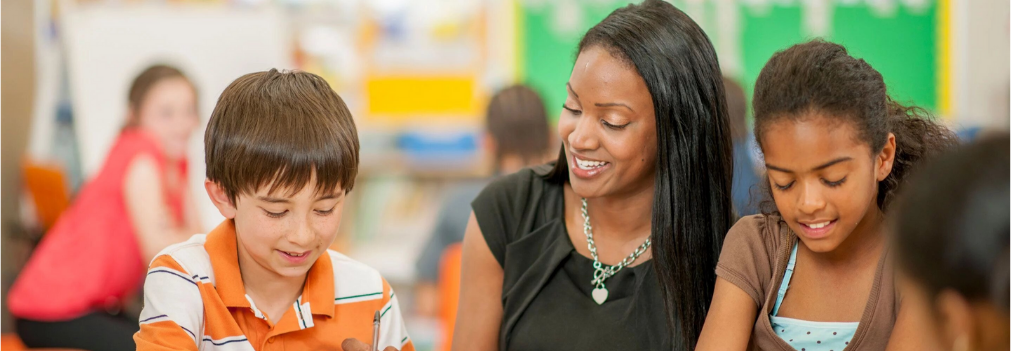
Welcome to The Including Children Affected by Migration Programme (ICAM)
ICAM restores the wellbeing and access to education for all Children Affected by Migration
The ICAM programme restores the Social and Emotional Learning (SEL) of all unsettled Children Affected by Migration (CAM) so that they can return to learning effectively and be fully included in their new school and society.
Without this support well educated CAM will not become the asset to society which is their great potential and will instead become a burden on the country’s benefit system.
Developed in Europe by a network of Child Welfare NGOs in Spain, Italy, Romania and the UK (ICAMnet), ICAM is endorse by UNICEF, UNHCR, The European Commission, Terre des Hommes and Eurochild as a highly effective programme for improving the SEL and consequent inclusion of CAM in schools throughout Europe – and now worldwide including for 60 million children in China.
Remarkable ICAM success in China
Originally developed by the ICAMnet team for UNICEF and the Chinese Ministry of Education to restore the SEL of children left behind in rural areas by parents migrating for work, the China ICAM programme has been so successful that it is now being implemented as the ICAM China SEL programme for all children in primary and secondary schools in 8 Provinces, improving the SEL of 60 million Chinese children.
The success of the adapted ICAM programme in China demonstrates that schools using the ICAM programme for their CAM soon realise that the learning of all children benefits from the SEL support that the ICAM programme provides.
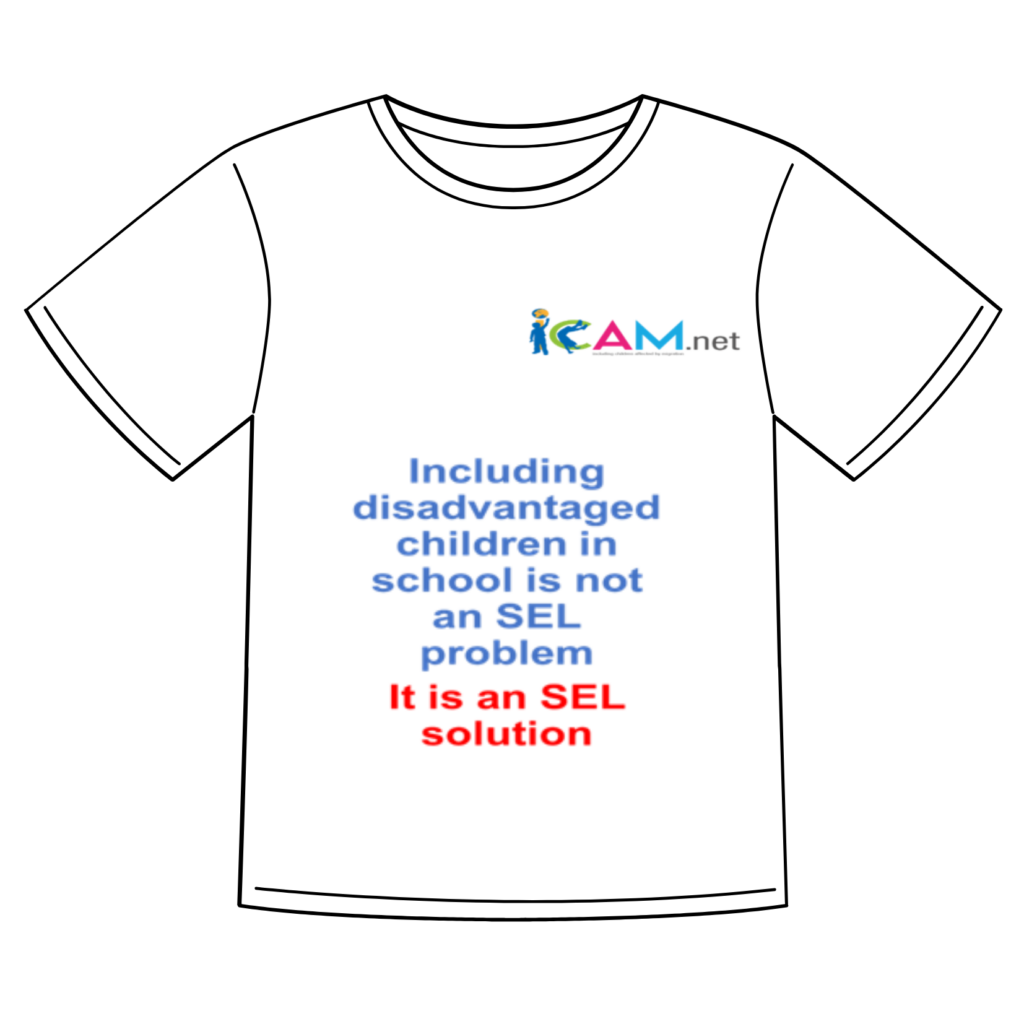
ICAM restores the Social and Emotional Wellbeing of Children Affected by Migration so that they can return to learning and are no longer denied their fundamental human right to education
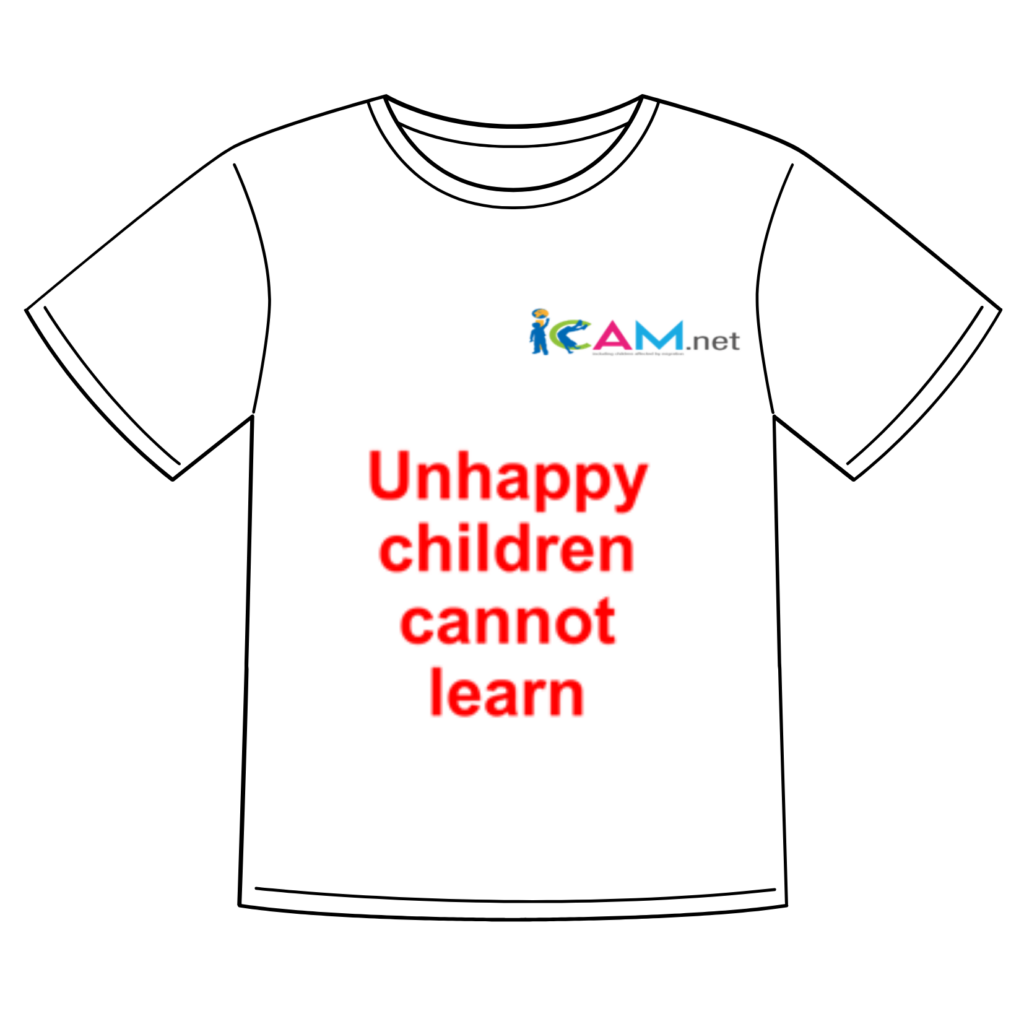
15.5 million European Children Affected by Migration are in danger of failure in their new schools unless their SEL is restored. They may be refugees, asylum seekers, economic or social migrants or those left behind by family moving to another country.
Brain science explains why unhappy, displaced children become poor learners. Until they feel settled, confident and secure, Children Affected by Migration cannot benefit fully from teaching in or out of school. They become disadvantaged by their circumstances and unable to reach their learning potential
ICAM upholds the right of Children Affected by Migration to high quality education under the European Child Guarantee and the UN Convention on the Rights of the Child.
All ICAM materials are available to download free
There are Primary and Secondary, School versions of the ICAM programme, each with special versions for Children Left Behind and Ukrainian Children, each with a school review instrument and parent/carer education programme. All materials are freely available.
The ICAMnet team train National ICAM Facilitators to coach 2 School ICAM Leaders from each school in a participating city, county, region or country, with ongoing support from an on-line network as they deliver the selected progamme in their schools for CAM and their parents/carers.
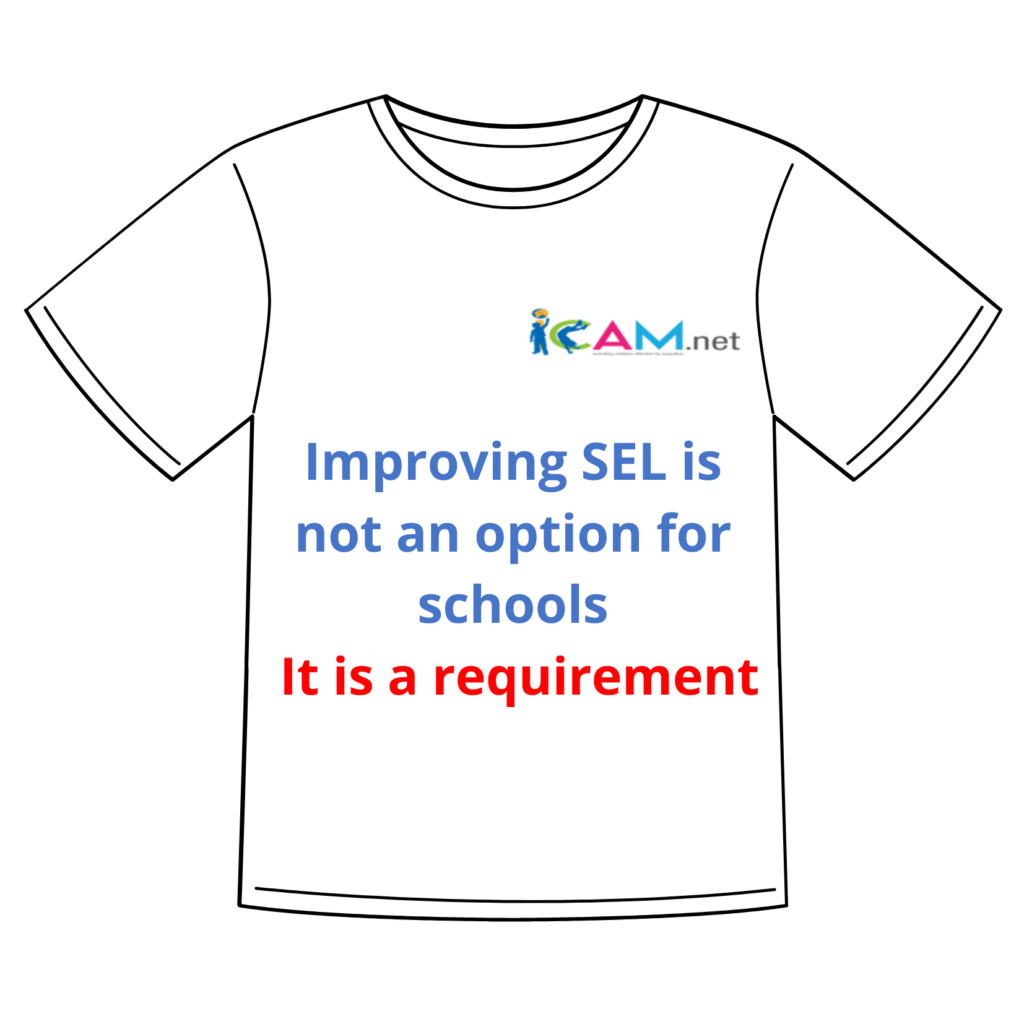
The war in Ukraine has generated the greatest humanitarian challenge and number of displaced children in Europe since WW2
ICAMnet responded immediately with a version of the ICAM Europe programme – ICAMucs for Ukraine – designed to restore the SEL of Ukrainian children so that they can be welcomed and included in their new school and new society
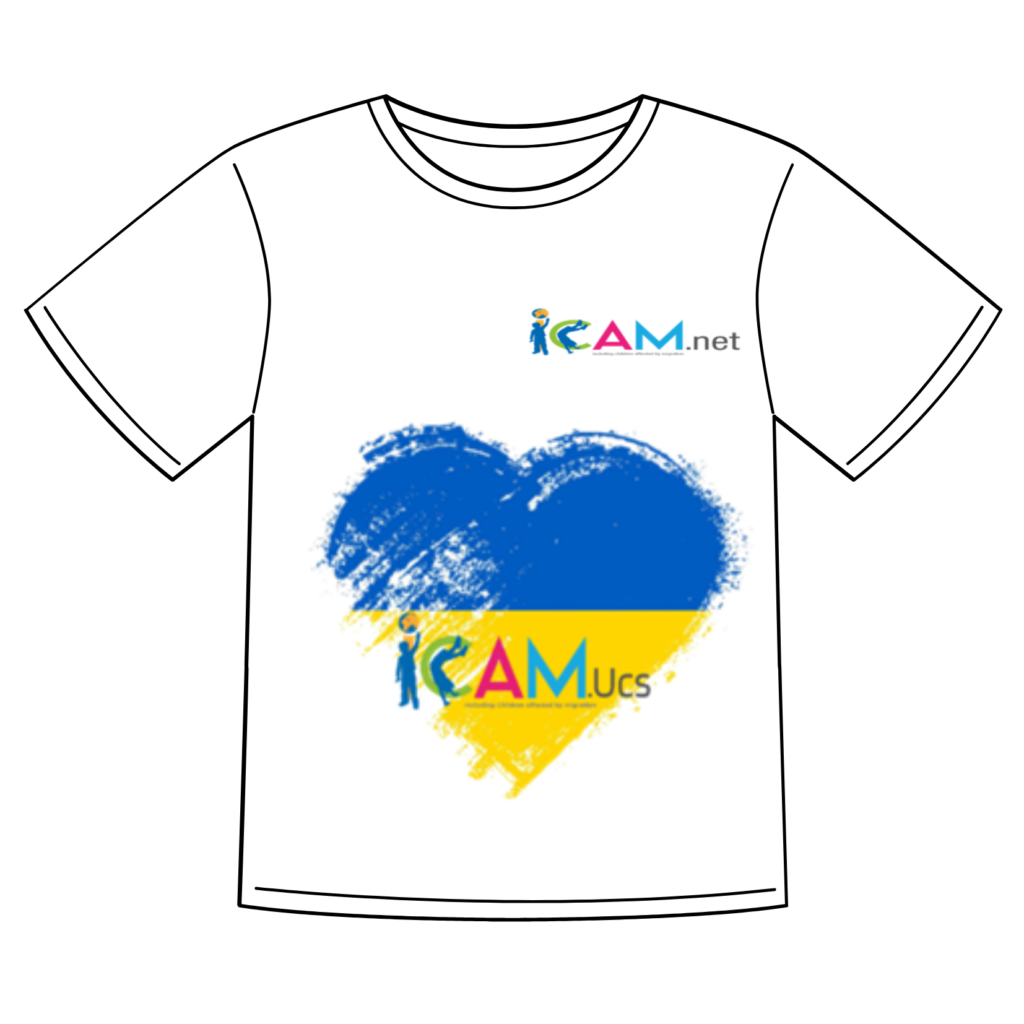
CAM are twice a likely to be the victims of bullying and 4 times more likely to suffer abuse, threats and attempts at grooming when they are on-line – a situation made worse because they are dependent on social media to stay connected with friends and family scattered across Europe
ICAMnet has responded by developing the ICAMcsr Be Cyber Safe and Responsible Programme to help CAM develop the SEL resilience and confidence to avoid upset and harm when using social media and to use it responsibly themselves
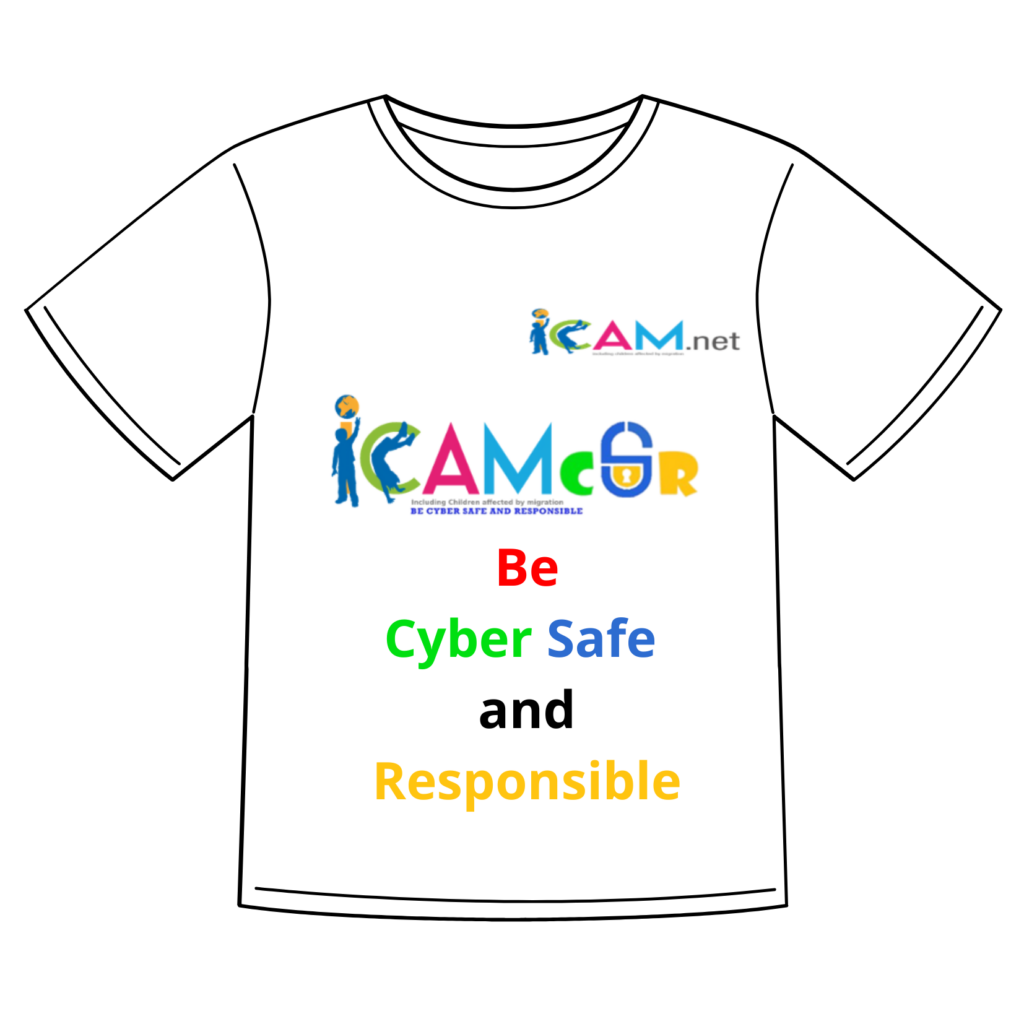
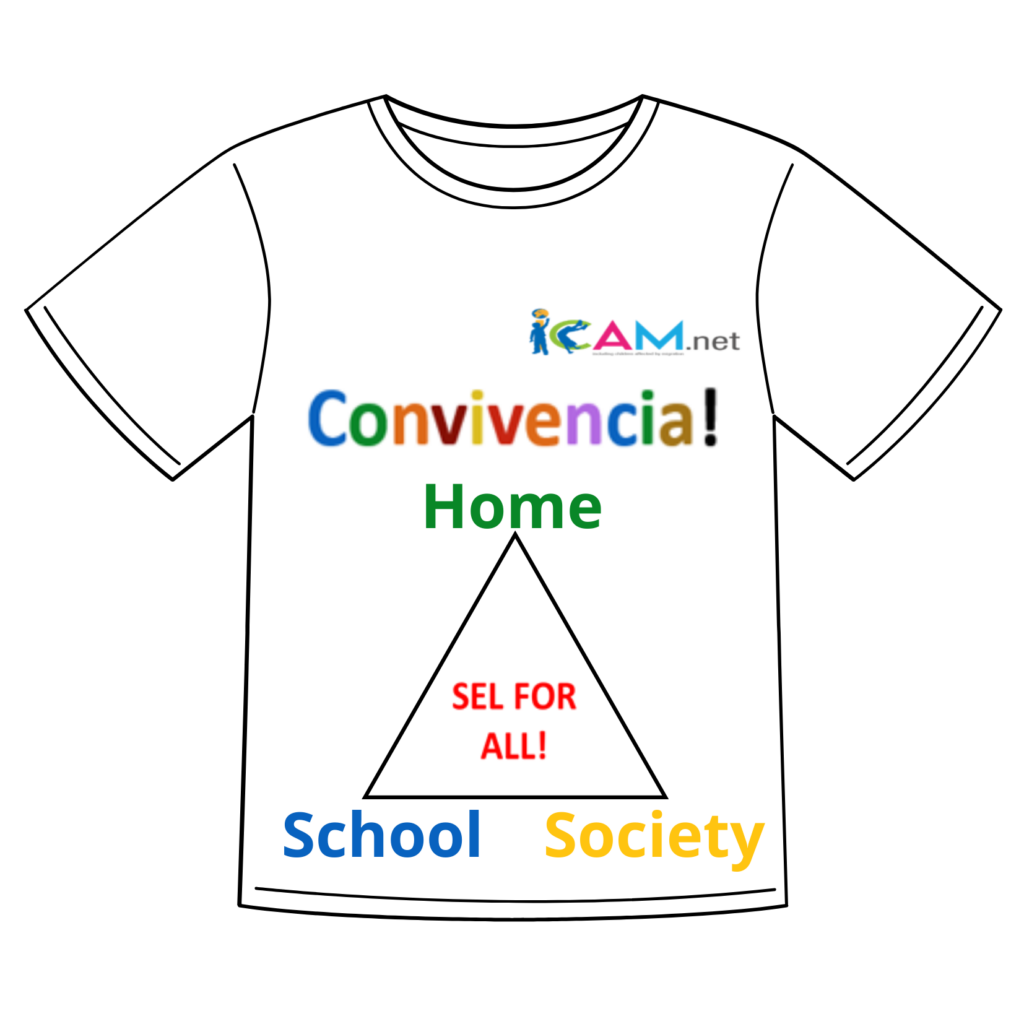
Children are in school for only 25% of their waking time Consequently all ICAM programmes have an important parent/carer education component so thet SEL restoration and development for CAM can continue in the home.
Providing group learning through workshops can help immeasurably with the partnership between parents/carers and the school.
Working together in the sessions will help to strengthen a trusting relationship between school and family based on a shared appreciation of the contribution each makes to the wellbeing of children and the care they share for the growth, development, and happiness of the student.
This will add to the feeling of security and belonging of CAM families in the school and in the wider community that the school represents.
A report for UNICEF notes that approximately 40% of students worldwide regularly experience violence in schools.
Bullying accounts for approximately 80% of violence against children resulting in their exclusion from learning.
Unless schools take specific steps to protect them, CAM are particularly vulnerable to violence and abuse – mainly bullying (including cyber-bullying), which is notoriously meted out by children, young people and adults on members of any community who are seen as different in appearance, circumstance, or culture.
The improvement in convivencia in schools is identified as the most effective and positive way to improve inclusion.
